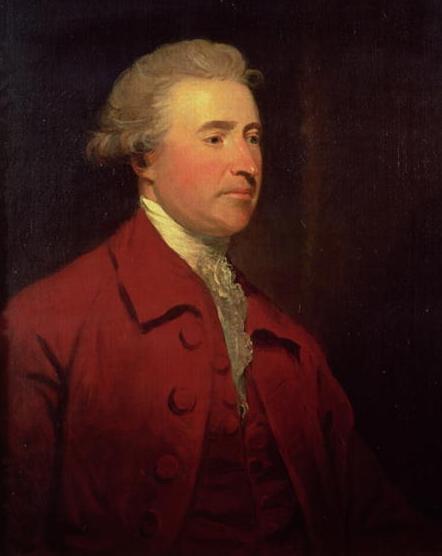Edmund Burke słynne cytaty
Źródło: E. Burke, „Refleksje i dane o nieurodzaju”, [w:] Idem, O duchu i naturze rewolucji…, s. 237
„Dla triumfu zła potrzeba tylko, żeby dobrzy ludzie nic nie robili.”
przypisywane; prawdopodobnie jest to parafraza innych słów Burke'a.
Inne wersje:
Aby zło zatriumfowało, wystarczy, by dobry człowiek niczego nie robił.
Jedna myśl o tym żeby zatryumfować nad złem, jest dla dobrego człowieka niczym.
Jedyną rzeczą potrzebną złu do zwycięstwa jest bierność dobrych ludzi.
Zło zwycięża, gdy dobrzy ludzie nic nie robią.
Źródło: Jarosław Gronert, Astrologia od początku, Pabianice 2007, s. 30.
Rozważania o rewolucji we Francji
Edmund Burke cytaty
„Żaden Europejczyk nie może stać się całkowitym uchodźcą w żadnej części Europy.”
Źródło: „Pressje”, wyd. 6–7, 2006, s. 155.
„Wolność bez mądrości i cnoty? To jest zło największe z możliwych.”
Rozważania o rewolucji we Francji
Źródło: „Zdanie”, wydania 70–81, Krakowskie Wydawnictwo Prasowe RSW Prasa – Książka – Ruch, Kraków 1988.
Źródło: Dociekania filozoficzne o pochodzeniu naszych idei wzniosłości i piękna, Warszawa 1968, s. 14, tłum. P. Graff.
Źródło: Acta philologica, wyd. 6, Wydawnictwa Uniwersytetu Warszawskiego, Warszawa 1974, s. 209.
O książce Teoria uczuć moralnych Adama Smitha
Źródło: E. Burke, Correspondence, cyt. za: R. Rydz, Edmund Burke na ścieżkach wolności, op. cit. s. 186.
Źródło: Edmund Burke, Appeal from the New to the Old Whigs, 1791.
Źródło: Louis L. Bredvold, Ralph G. Ross, Ann Arbor, The Philosophy of Edmund Burke, 1960, s. 60.
O relacjach między władzą państwa a wolnością obywateli.
Rozważania o rewolucji we Francji
Rozważania o rewolucji we Francji
Rozważania o rewolucji we Francji
Rozważania o rewolucji we Francji
Rozważania o rewolucji we Francji
„Skłonność do zachowywania i zdolność ulepszania wzięte razem – oto wzór męża stanu.”
Rozważania o rewolucji we Francji
Rozważania o rewolucji we Francji
Edmund Burke: Cytaty po angielsku
Observations on a Late Publication on the Present State of the Nation (1769)
1760s
Źródło: Second Speech on Conciliation with America (1775)
“Kings will be tyrants from policy, when subjects are rebels from principle.”
Volume iii, p. 334
Źródło: Reflections on the Revolution in France (1790)
Źródło: An Appeal from the New to the Old Whigs (1791), p. 460
“The people never give up their liberties but under some delusion.”
Speech at a County Meeting of Buckinghamshire (1784)
1780s
Źródło: A Philosophical Enquiry into the Origin of our Ideas of the Sublime and Beautiful
“It is our ignorance of things that causes all our admiration and chiefly excites our passions.”
Źródło: A Philosophical Enquiry into the Origin of our Ideas of the Sublime and Beautiful
Reflections on the Revolution in France (1790)
“Tyrants seldom want pretexts.”
Letter to a Member of the National Assembly (1791)
A Letter to a Member of the National Assembly (1791)
Letter to Sir Hercules Langrishe (1792)
1790s
“The wisdom of our ancestors.”
Burke is credited by some with the first use of this phrase, in Observations on a Late Publication on Present State of the Nation (1769), p. 516; also in Thoughts on the Cause of the Present Discontents (1770) and Discussion on the Traitorous Correspondence Bill (1793)
1760s
Reflections on the Revolution in France (1790)
Reflections on the Revolution in France (1790)
Thoughts on the Cause of the Present Discontents (1770)
Reflections on the Revolution in France (1790)
Reflections on the Revolution in France (1790)
Letters On a Regicide Peace (1796)
Reflections on the Revolution in France (1790)
Źródło: An Appeal from the New to the Old Whigs (1791), p. 440
Reflections on the Revolution in France (1790)
Reflections on the Revolution in France (1790)
Second Speech on Conciliation with America (1775)
Speech to the Electors of Bristol (3 November 1774); as published in The Works of the Right Hon. Edmund Burke (1834)
1770s
